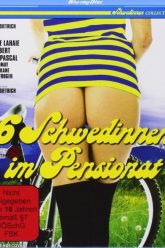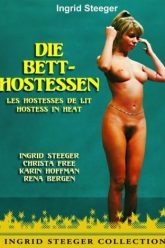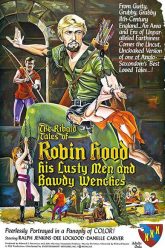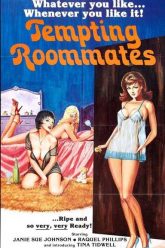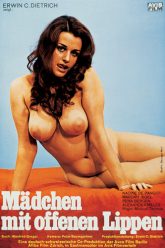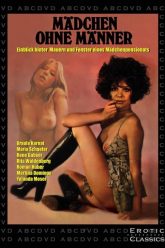Erwin C. Dietrich
Overview
Born October 4, 1930 in Glarus, Glarus, Switzerland
Died March 15, 2018
Mini Bio
Erwin C. Dietrich was the most successful and influential movie “entrepreneur” in Switzerland for decades. Already in his teenage years he was interested in movies and observed all happenings in Hollywood from his home in St. Gallen. He quit his dream of becoming an actor rather early on and instead started focusing on his sense for artistic trends appealing to audiences. Starting in 1955 he began producing movies, first with his company “Urania”: The movies THE MAN IN THE BLACK DERBY and MODEL HUSBAND starring popular Swiss comedian Walter Roderer turned into big successes that still haven’t lost their popularity. At around the time where the “Edgar Wallace” thrillers became popular in Germany, Erwin brought NYLON NOOSE and STRANGLER OF THE TOWER starring German movie stars, such as Dietmar Schönherr, to the cinemas. Movies in the mid-60s increasingly included more sexually open themes, a trend Erwin could not and did not want to miss out on. An early example is ST. PAULI BETWEEN NIGHT AND MORNING he produced, which is characterized by an almost artistic arc between common thriller story and the newly discovered erotic appearance. It is exactly those examples that are highly respected by movie buffs around the world and are being rediscovered in his early productions. Later, Erwin achieved significant commercial success with his directorial debut in 1968, the movie adaptation of Guy De Maupassant’s novel THE COLONEL’S NIECES with the same title. With this movie he hit the nerve of movie-goers and despite the massively censored scenes the audience showed up in droves. Over 45 more movies followed until 1980. Movies that he either directed or produced, often using pseudonyms such “Michael Thomas” or “Manfred Gregor” under the umbrella of newly “Elite-Film” (later: “Ascot Film GmbH”). Most of these movies came to life in a very informal environment, with a small crew in his studios in Rümlang, where the set pieces were rearranged on the fly. Some highlights can be found, in particular those starring Ingrid Steeger or French erotic star number one, Brigitte Lahaie. These movies have meanwhile advanced to cult status and are long running favorites at movie festivals and in home cinemas worldwide. Erwin often mentioned his favorite movie to be his remake of THE COLONEL’S NIECES, starring Brigitte Lahaie. Jess Franco, who for years has been ridiculed as a cheap grunge director and yet in the end received the “Goya” award, the Spanish Oscar, made 17 movies in this work period with Erwin C. Dietrich and called it the most productive and pleasant period of his career. Movies such as LOVE LETTERS OF A PORTUGUESE NUN or JACK THE RIPPER with divine performances by Klaus Kinski are now highly praised by movie buffs worldwide, incl. industry friends and fans such as Joe Dante and Quentin Tarantino (who once called Erwin the “Swiss Roger Corman”). On top of that Erwin’s movie distribution business “Avis” which brought over 400 movies to local cinemas, flourished. He jumped on the “exploitation movie” bandwagon alone, yet this was not enough for movie buff Erwin. He was looking to get recognized at festivals and by the elite of film critics. And he got it. THE STORY OF PIERA produced by him and directed by Marco Ferreri, starring Isabelle Huppert and Marcello Mastroianni, may not have been a commercially comparable success to Erwin’s other productions but it turned into a huge hit at the festivals, and Hanna Schygulla received the “Golden Palm” in Cannes for her performance. Even on an international level things looked up: the action spectacle THE WILD GEESE which he co-produced with Euan Lloyd from Britain, catapulted Erwin into an A-league that was unknown at that time, and garnered him international recognition. In addition, the star-studded cast that included Richard Harris, Roger Moore, Richard Burton, and Hardy Krüger did its share; the movie was seen by 4 million movie-goers in Germany alone and advanced to become a huge blockbuster in 1978, ultimately winning the “Goldene Leinwand” award. Following this success Erwin launched similar additional big productions on the big screen, including ESCAPE TO ATHENA and THE SEA WOLVES. Convinced by their success Erwin began production along with business partner Peter Baumgartner (and Peter’s dubbing studios in Berlin, “Cinephon”) three action spectacles to be shot in the Philippines. Emphasized by a gigantic marketing campaign (including an ecstatic Klaus Kinski dominating the promo tour) he released in the mid-80s the “mercenary trilogy” consisting of CODENAME WILDGEESE, COMMANDO LEOPARD and THE COMMANDER on the big screen. The Hollywood cast including Klaus Kinski, Ernest Borgnine, and Lee Van Cleef impressed everyone. During that time he also opened up the first cinema-multiplex in Switzerland called “Capitol”. Later he expanded it with the “Cinemax”. In the beginning of the 90s, after the dance movie DANCE ACADEMY 2 – DANCE TO WIN, the two Swiss comedies EIN SCHWEIZER NAMENS NÖTZLI and DER DOPPELTE NÖTZLI, as well as over 100 other productions, Erwin retired from the active movie production business and committed himself to his movie distribution company “Ascot-Elite” which was taken over by his children a few years ago and still today this largest independent movie distributor in Switzerland is managed by them. At last, Erwin C. Dietrich led the supervisory board and every morning he reviewed the box office results of the previous day. He passionately committed himself to the digital restoration of his cinematic legacy to preserve it for all future generations.

